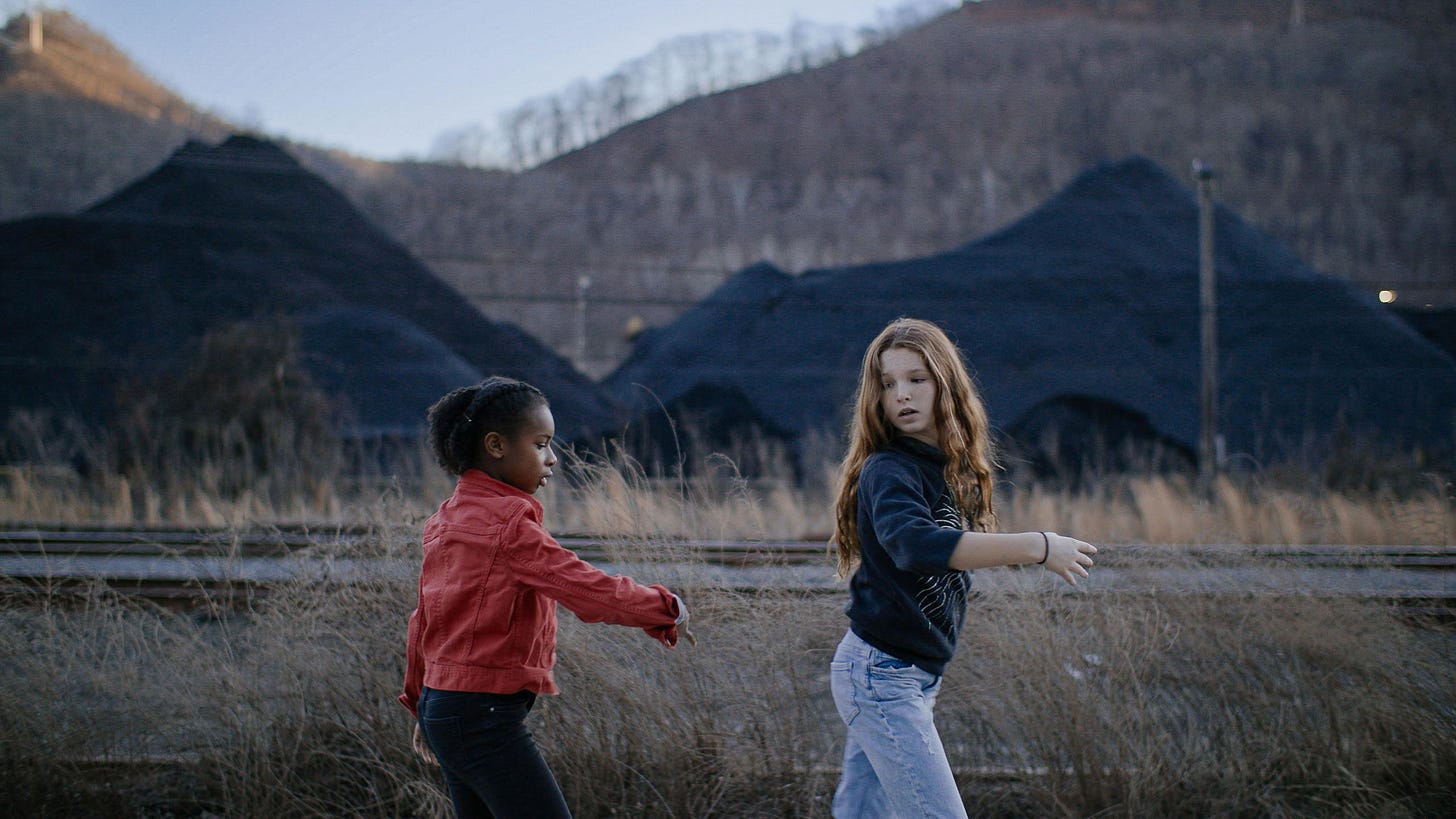In the opening shot of Elaine Mcmillion Sheldon’s new documentary, ‘King Coal’, we see a group of people all dressed in black, walking in unison down a dirt road. Watching them walk together down a dirt road makes your mind wonder. Why are they there? What are they doing? Some people may even laugh at what they are doing because it seems so foolish. What isn’t clear to the audience at the begging of this engrossing documentary about Appalachia is how these individuals got to that exact point. What follows for the next 78 minutes is a beautifully woven portrait of these individuals and what led them to that exact moment. By the time we revisit this scene at the end of the film, we know who they are, what they have been through, and why they are doing exactly what they are.
Like the individuals the film follows, the region of Appalachia (specifically the state of West Virginia) gets the same treatment almost every single day across the country. The rest of the world watches as a people fight to hold onto what once was. Some pick the region as an easy target for jokes, while others question why anybody would live there or purse something so antiquated. Like Sheldon portrays in the film, you can’t understand the state of West Virginia, its people, and their relationship to coal, unless you understand the history and how they got to that point. Once you hear the stories, see the dedication and determination of the people, and understand how they got there, you can’t have an appreciation or care for the current state of where they are or how they move forward.
As someone who grew up in West Virginia and is the grandson of a coal miner, I found it haunting how accurately Elaine Mcmillion Sheldon portrayed the tension of the Appalachian region. Instead of honing in on the political state of coal, King Coal, rightly focuses on the people of the region. Coal brought everyone together, but what becomes of the people when coal is no more? The film asks more questions than gives answers about what the path forward may be for these people, but it is in those questions and in the stories that you find a compassion for what this region has experienced and is experiencing.
Like the group of people at the beginning of the film, no one from the outside understands the current state of the region because no one knows where they have come from and how they got to that point. No one knows the resiliency of the people or their stubbornness to not leave this place they love so dearly. Whether you grew up in the region or can’t even point to the region on a map, it is a story that is worth listening to and a people that you will fall in love with.
What worked - Stunning cinematography and so poetic that my spine tingled
What didn’t - One or two scenes dragged a bit too much
Rating - 85/100
Will I watch again - 100%, multiple times
Would I recommend - Yes, to every person I know





